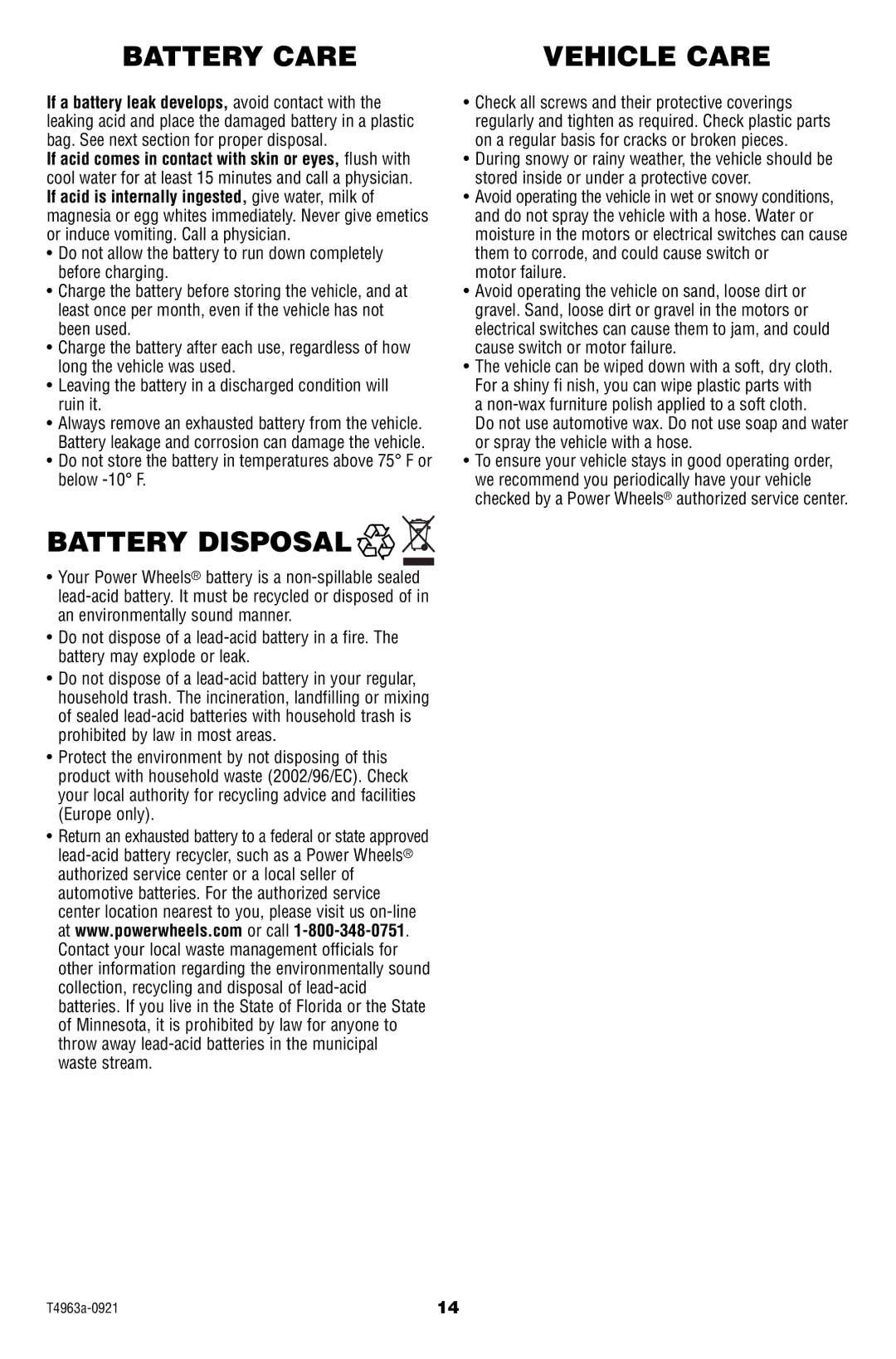BATTERY CARE | VEHICLE CARE |
If a battery leak develops, avoid contact with the leaking acid and place the damaged battery in a plastic bag. See next section for proper disposal.
If acid comes in contact with skin or eyes, flush with cool water for at least 15 minutes and call a physician. If acid is internally ingested, give water, milk of magnesia or egg whites immediately. Never give emetics or induce vomiting. Call a physician.
•Do not allow the battery to run down completely before charging.
•Charge the battery before storing the vehicle, and at least once per month, even if the vehicle has not been used.
•Charge the battery after each use, regardless of how long the vehicle was used.
•Leaving the battery in a discharged condition will ruin it.
•Always remove an exhausted battery from the vehicle. Battery leakage and corrosion can damage the vehicle.
•Do not store the battery in temperatures above 75° F or below
BATTERY DISPOSAL

•Your Power Wheels® battery is a
•Do not dispose of a
•Do not dispose of a
•Protect the environment by not disposing of this product with household waste (2002/96/EC). Check your local authority for recycling advice and facilities (Europe only).
•Return an exhausted battery to a federal or state approved
•Check all screws and their protective coverings regularly and tighten as required. Check plastic parts on a regular basis for cracks or broken pieces.
•During snowy or rainy weather, the vehicle should be stored inside or under a protective cover.
•Avoid operating the vehicle in wet or snowy conditions, and do not spray the vehicle with a hose. Water or moisture in the motors or electrical switches can cause them to corrode, and could cause switch or
motor failure.
•Avoid operating the vehicle on sand, loose dirt or gravel. Sand, loose dirt or gravel in the motors or electrical switches can cause them to jam, and could cause switch or motor failure.
•The vehicle can be wiped down with a soft, dry cloth. For a shiny fi nish, you can wipe plastic parts with
a
Do not use automotive wax. Do not use soap and water or spray the vehicle with a hose.
•To ensure your vehicle stays in good operating order, we recommend you periodically have your vehicle checked by a Power Wheels® authorized service center.
14 |
